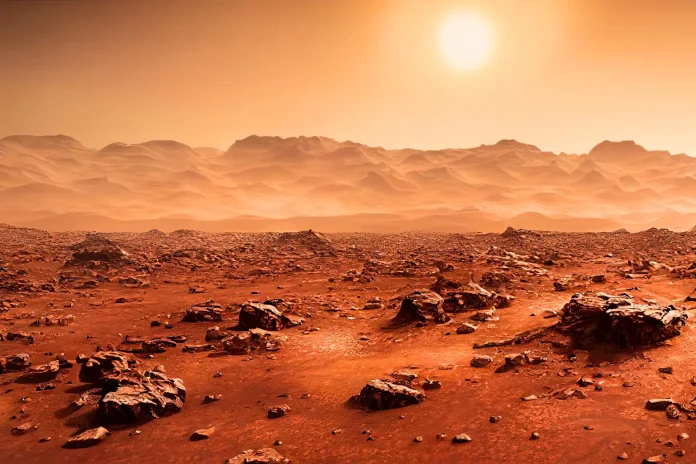The rusty red surface of Mars is iconic, but recent findings by NASA’s Perseverance rover have revealed a surprising twist. Scattered across the floor of Jezero Crater lie thousands of strange white rocks on mars, stirring the curiosity of scientists.
Sea of White Rocks on Mars Red Soil
The Perseverance rover, which began exploring Jezero Crater in early 2021, has captured images of over 4,000 light-toned, pebble-sized rocks unlike anything previously observed on Mars. “These are very unusual rocks and we’re trying to figure out what’s been going on,” said Candice Bedford, a planetary scientist at Purdue University and member of the Mars 2020 science team, during a presentation at the Lunar and Planetary Science Conference (LPSC) last month.
These white rocks, classified as “floats,” have been removed and transported from their original locations. Some appear smooth with pits, while others exhibit a layered structure. Initial analysis by Perseverance’s instruments revealed a surprising lack of water and key minerals like iron, magnesium, calcium, and sodium. “These are pretty depleted in a lot of things,” noted Bedford.
Related: Can New Rolls Royce Nuclear Reactor Mine Moon & Mars?
The Secrets of Jezero Crater’s Past
The origin of these white rocks is a key focus for scientists. Studying them could provide important clues about the history of Jezero Crater, particularly the presence of water in the past. While the crater appears empty today, the white rocks could hold evidence of a time when water flowed freely.
Despite identifying thousands of white rocks, Perseverance hasn’t located any “outcrops” – bedrock formations of similar composition that extend from the Martian surface. This lack of a source location further deepens the mystery for the scientists.
The dehydrated nature of the white rocks suggests they may have been subjected to high temperatures from lava flows or asteroid impacts at some point in Martian history. These events could have transformed the rocks before they were transported and deposited on the crater floor. Bedford and her team believe this process likely happened relatively recently in Jezero Crater’s geological history.
Also Check: Odysseus Moon Mission Concluded as First Private Moon Lander
Quest for Answers and Return to Earth
The discovery of these white rocks on mars adds another layer of interest to the Martian soil. Scientists are eager to unravel the mysteries they hold, unlocking secrets about Mars’ past environment and geological processes. This discovery coincides with NASA finalizing the architectural design for the Mars Sample Return (MSR) program, which aims to retrieve Martian rock samples for detailed analysis on Earth. If the MSR program proceeds, the white rocks could be prime candidates for collection and in-depth study, potentially providing definitive answers to the puzzles they present.



